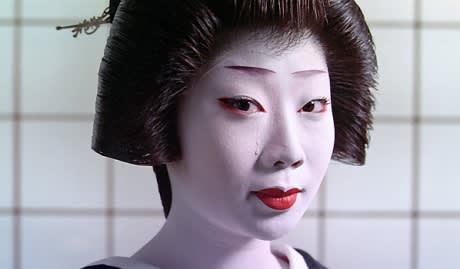Having already established that there's a market for films packed with rich visuals that people can play on their high-end, big screen TVs, thanks, in part, to the success of such documentaries as the BBC's Frozen Planet and Human Planet, director Ron Fricke continues his legacy as a trailblazer in the genre of nonverbal visual delights. With the recent advent of the 70mm film, Fricke returns with Samsara, utilizing the incredible, new high-resolution cinema format to capture beautiful landscapes and ways of life around the world with unprecedented clarity. Unfortunately, Fricke is also known for being somewhat of a New Age hippie and injects his personal observations of the Western World, juxtaposing them against that of the Far East and various other locales, glibly asserting his ideals onto the geopolitical landscape. Shot over the course of five years, in 25 countries and on five continents, Fricke takes us on a quest for a greater understanding of the human condition; however, it's important to note that this journey is entirely Fricke's personal view of modern civilization and how he feels we need to get back to our roots (from the comfort of his privileged, Western home). Through his showcase of suffering, poverty, greed, violence, lust, adoration of war and financial prowess, Fricke makes blatant, pointed commentaries that extend beyond the mere lexicon of the heavy-handed. Approximately three-quarters of the way through there is a sequence of Chinese assembly lines producing irons that leads into scenes of chicken and pork processing plants. Fricke transparently contrasts this with North American consumers stocking up on mass amounts of food and toilet paper at a Costco and subsequently shows a scene of obese Americans gorging at a Burger King, reiterating shamefully bland and uninspired observations (ironically about mass-produced magazine ideals and assimilation through moral bullying) that might be more forgivable if he were 40 years younger. In another sequence, Fricke felt compelled to juxtapose scenes of sex dolls with scenes of strippers at a club, leading us down a condescending path that ends with a shot of a Japanese Geisha staring into the camera and shedding a single tear down her cheek. Samsara is most certainly one of the most beautifully assembled films to have utilized the best technology currently available; it's just incredibly unfortunate that it was used to propel Fricke's overly simplistic sense of moral superiority. Had it not been for the grating, non-verbal subtext, the film would have garnered a ten rating for the jaw-dropping visuals alone. The Blu-Ray includes extensive supplemental material about the subject matter, Fricke's history, the filming techniques and inspiration. It asserts that the main distinction between Samsara and Fricke's previous films is the overt mirroring of worldly beauty with global nastiness. No one questions the painful placement of performance art in the film, such as a man in a suit covering his face in mud and manipulating it an animalistic manner. That's totally what the world needs, Ron: for every man to step back to his caveman roots.
(eOne)Samsara [Blu-Ray]
Ron Fricke

BY Daniel PrattPublished Jan 15, 2013